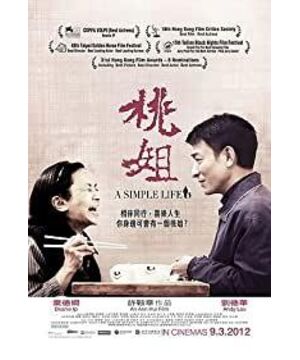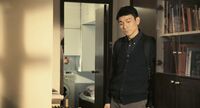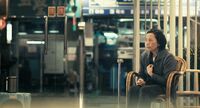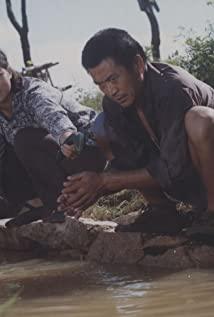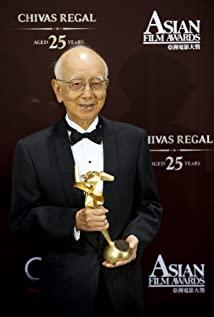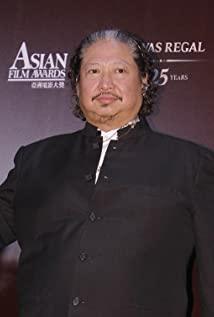The plot of the film is simple. Sister Tao (played by Ye Dexian) is an old servant who raised the second-generation young master Roger (played by Andy Lau). Roger is engaged in film production. He is still single in his fifties, and Sister Tao has been taking care of him. One day, Sister Tao prepared a table full of meals as usual, waiting for Roger, who was returning home from a business trip from the mainland, to pass the time while watching the street scene outside the window, but unconsciously fell into a coma on the ground... When Sister Tao woke up, she found herself In the hospital, Sister Tao had a stroke! Sister Tao was discharged from the hospital and came to Roger's carefully selected nursing home. The environment was unfamiliar and the residents were strange. She pretended to be calm. In his spare time, Luo Jie often came to visit Sister Tao in the nursing home. The master and servant often gossip like a mother and son, and still keep the habit of teasing and teasing each other. Roger also specially brought Sister Tao to the premiere of the movie. For the first time, she deliberately dressed up to attend the meeting; Sister Tao was an eye-opener at the premiere, and finally had the opportunity to meet many celebrities, but her wish was fulfilled. At the end of the film, Luo Jie returned from a mission, and Sister Tao passed away peacefully...
"Sister Tao" still continues the high and cloudy tone of director Xu Anhua's "Day and Night in Tianshuiwei", weakening the dramatic conflict, and a lot of The details of life are arranged, and the characters' hearts are approached by restoring the normality of life. She refused to be sensational, and even with the tragic plot of Sister Tao's death, she handled it very plainly, and Andy Lau didn't even cry. The subject matter is heavy, but Xu Anhua is not blindly immersed in the tone of sadness and pity, on the contrary, he also deliberately creates some joy for the audience, either irony or humor, winning the audience's knowing smiles again and again. However, when we "slightly saddened" and sent "Sister Tao" away, we walked out of the theater and came to the street full of people, but what filled our hearts was an inextricable sadness.
Yes, the theme of the elderly can't be fun; even if "Flying Over the Nursing Home" seems very inspirational, it is actually a deeper worry: you can fly over the nursing home in absurd ways, but you can't fly over yours. elderly. "Sister Peach" confronts everyone's fear of existence in the last stage of life. Although it is very restrained in terms of artistic expression, it still shows its cruelty in a line drawing way. Although surrounded by children, the loneliness in the old man's heart still shrouded his gloomy life like a flood. Sister Tao will instinctively refuse the care from others, even Roger, who is in love with her mother and son. This is the same mentality as many parents. They are nostalgic for family happiness, but also unwilling to be a burden to their children. The fear of death is buried. In the heart, facing alone... A film review profoundly pointed out: "Everyone's destination is a barren tomb, and there is no soul in a barren tomb that is not alone. All we can do is to go to our destination. We just support each other on the way." And now even this kind of "support" has become more and more out of reach.
Therefore, the elderly are not suitable for watching "elderly themes", which is a very reasonable thing. Several of my friends have said that they don't think about tomorrow at all. When they are happy, the boat will naturally straighten when it reaches the bridge, and it will straighten if it is not straight. Why use the unknown tomorrow to affect today's mood! But otherwise, I am quite interested in this subject, like a naughty child who is always curious about the broken door full of cobwebs in the basement at home, fiddling with a bent wire on the rusty lock, always If you want to see what's in there, it doesn't matter if there's a zombie or a skeleton!
Death is very taboo in China, but in foreign countries, it is a kind of culture. Children in kindergarten should be given "life education" (ie "death education"). In Paris, in Moscow... quiet cemeteries are often opened up as attractions. Even our Fushou Garden in Qingpu is full of humanistic spirit. People will not feel the horror of death here, but have a "beauty" that is fully enlightened. Many Chinese and foreign writers use this as writing material. I think the best writing is when Shi Tiesheng, who passed away not long ago, wrote "dead" the most:
"Now I often have this feeling: Death is sitting in the hallway outside the door, sitting in the dark, out of sight of mortals, waiting patiently for me night after night. I don't know when it will stand up and say to me: Hey, let's go. I guess that's a no-brainer. But whenever it's, I think I'm still a little rushed, but I don't hesitate, I don't procrastinate."
Think about how amiable and empathetic this is . My old friend, won't you "obediently" follow it? No wonder Zhou Guoping said, "Tie Sheng is the most soulful writer in contemporary China... Tie Sheng's life is really healthy.... In this era when the soul is absent, we have Tie Sheng, we are so lucky!" It is also said that he "used his broken body to express the most sound and full-fledged thoughts." Let's
talk about "Sister Tao" later. It's okay not to touch some things, but it's not necessarily a disaster if you touch them. Maybe seeing the unknown world deeper and thinking more thoroughly will enhance the immunity of the soul, just like Shi Tiesheng; after all, there are so many old people who let the last ray of sunshine into the "basement".
View more about A Simple Life reviews


